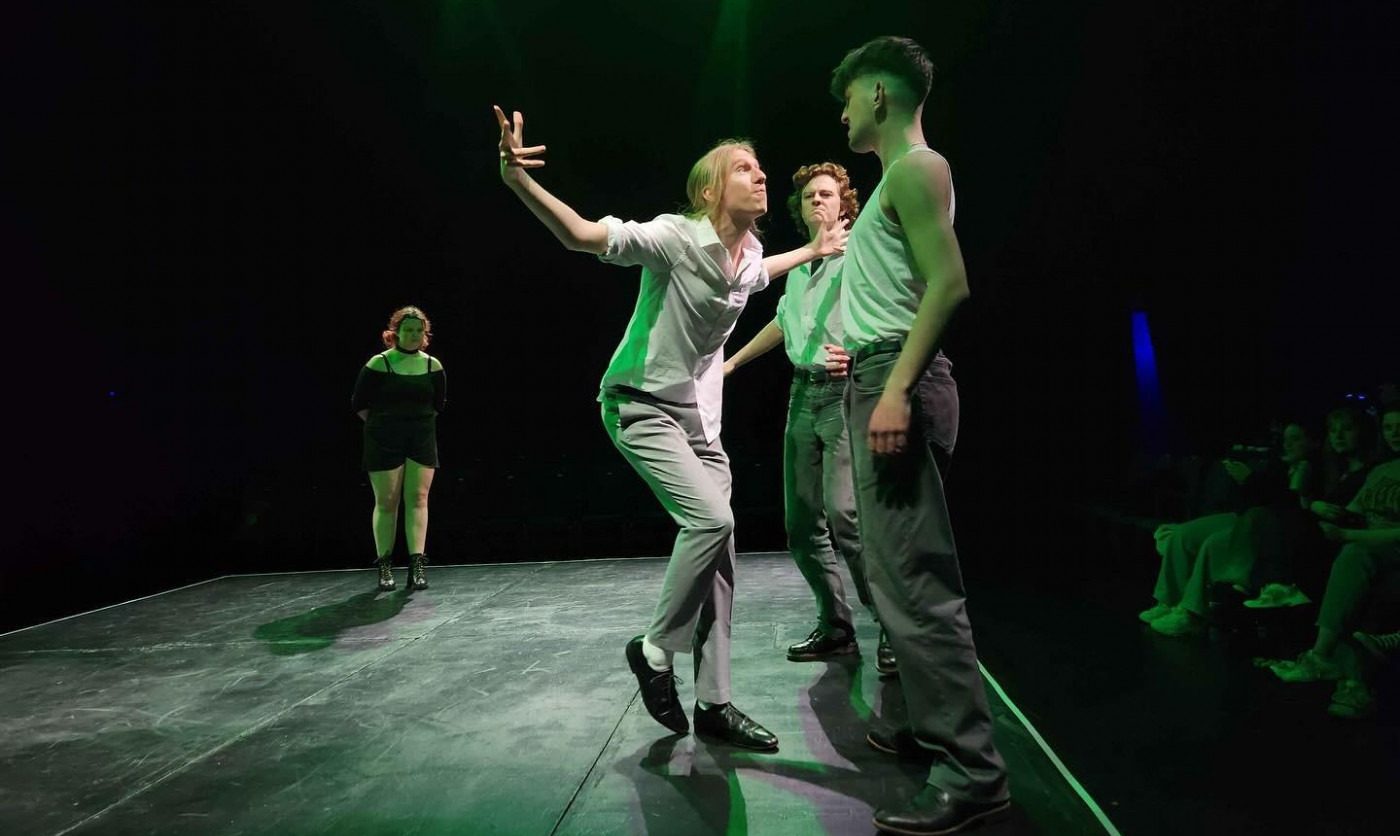The Duchess of Mouthy?: WUDS presents a Jacobean classic in the Warwick Arts Centre
The Duchess of Malfi, by John Webster, is a Jacobean revenge tragedy that was recently produced by WUDS (Warwick University Drama Society for those not in the know), revolving around the eponymous Duchess of Malfi’s complex relationship drama. It delves into the usual disagreements, familial issues, murders, and lycanthropy that is often commonplace in all of our relationships. The reception has been mixed in the best way. It had that marmite effect on people, with many calling it overlong, overblown, and pretentious, and others singing its justified praises for its fantastic performances, skilled direction, and daring risks that the director, Daisy Murphy, took with the play. For my money, it isn’t my favourite play I have seen by Warwick students, but it is the most damn interesting for what it is. It pushed boundaries of sexuality that I haven’t seen been done in Warwick Drama, and it succeeds because of it. On one level, it is filled with incredibly, for lack of a better word, passionate scenes of sex and violence. You would think it would be a riotously enjoyable experience. It is not. It’s harrowing and difficult, but sensuous and beautiful. Much like making love to a cheesegrater, albeit one with a great personality.
Director Daisy Murphy’s vision is clear. It’s dystopian, cynical, cold, clinical, and dark
The Duchess of Malfi (played terrifically by Anoushay Dar) rather controversially has married her steward, Antonio (Max Green). This does not go down well with her powerful brothers. Driven by a creepy, and I dare say incestuous, desire to control her fate and find true love, the Duchess’s covert marriage is soon exposed by her brothers, Ferdinand (Matthew Dickinson), whose obsessive jealousy borders on madness, and the Cardinal (George Jasper), a scheming, power-hungry clergyman. Employing the ruthless spy Bosola (Abi Guest), they orchestrate a sinister plot, culminating in tragic and bloody violence. And Ferdinand believes he’s a werewolf in a psychotic episode.
Director Daisy Murphy’s vision is clear. It’s dystopian, cynical, cold, clinical, and dark. The costumes range from renaissance chic, especially the Duchess, to the exaggerated mafia darkness of the main antagonists and his group of nasty courtesans. The lighting is especially effective in the scene where the Duchess is warmly lit, of course, contrasting with the antagonists. I’m not an analyst…I write for The Boar.
The violence is stylised and tremendously unpleasant, with its squib usage being especially enjoyable during the last acts
f you saw the play, you would know about the pure intensity of many scenes in this play. The mask scene, if you saw the play, goes to justify the play being staged in the Warwick Arts Centre studio and in the round, which usually goes as a gimmick, but is incredibly effective in this. The violence is stylised and tremendously unpleasant, with its squib usage being especially enjoyable during the last acts. The play in several points verges into incredibly impassioned romance scenes, with many of the characters being either the mistress of another character or their partner, or neither in Bosola’s case. These are handled supremely by the intimacy/fight coordinator Bethan Loh, who has mastered this theatrical art. From discussions with the cast, everyone was enthusiastic to make these scenes both as dramatic and entertaining as possible.
This is seriously good theatre, made with vision, vigour, guts and gumption
All of these are underpinned by the sheer unabashed gloom and cynicism that the play has built its centuries of reputation on. A significant slice of the characters end up being murdered, including children. Sadly, there are a couple of places where this enjoyable atmosphere of unpleasantness is broken. Some performances towards the latter half of the play felt incogruent with the style of the play before. However, I have also spoken to people who enjoyed these great risks taken with the acting. Additionally, there is an unfortunate Oasis joke played upon the ukelele. Call me a bore and someone who can’t enjoy fun, but it just didn’t hit that darkly comic contrapuntal feeling that I would have wanted from the play. Despite that, it does not tarnish how much of an artistic triumph this play is. Genuinely, folks, this is seriously good theatre, made with vision, vigour, guts and gumption. Clocking in at almost three hours, depending on the production, it is a sumptuous and thoroughly worthwhile experience, especially when one remembers that Pirates of the Caribbean: At Worlds End is a similar length. and is a lot less satisfying.

Comments